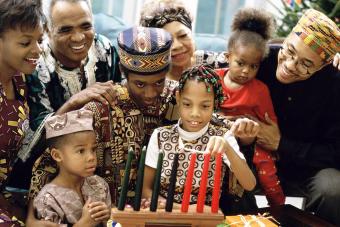
Use poems for preschool children to instill a love of the literary form of writing early in life. Poetry is a great way to teach children everything from vocabulary to numbers and letters.
Poetry for Preschoolers
Preschoolers are old enough to understand short poems but not quite ready to begin reading them by themselves. Reading poetry aloud with parents, siblings and in the classroom is a wonderful way to excite kids about reading and school. A poem is a fun literary break from typical stories.
When choosing poetry for preschoolers, look for elements that appeal to children ages three to five:
- Rhyming is a wonderful way to introduce poetry to kids. It makes the poems easy to memorize and offers a hint to reciting them aloud. Many rhyming poems are easy to sing to a familiar tune, too.
- Narrative poems tell a story in stanzas. Consider using narratives about everyday activities as a way to teach manners or give instructions to the child.
- Humorous poems are favorites for preschool aged children. These funny poems for kids may be in haiku form, quatrains or even limericks. Topics might range from fantastical dragon and fairy imagery to monsters visiting the classroom.
- Repetition in kids' poetry is a way to get children involved in the story. Once they have heard them poem a few times, they can begin to help you recite it themselves.
Another element that preschoolers enjoy in poetry is the opportunity to act out the lines using their hands, fingers, feet and the rest of their body. Poetry that deals with emotions allows them to make faces that go with the poems and opens up an opportunity to talk about various situations in their lives.
Poetry Foundation Early Reader Recommendations
The Poetry Foundation, founded in 2003, is a foundation committed to keeping poetry alive in today's culture. On the Foundation's website is a resource tool that allows users to search for poems in their archive. The Early Reader section of poems for children age three to five has over 100 listings, including famous poems like At the Sea-Side by Robert Louis Stevenson, If You Catch a Firefly by Lilian Moore and The Owl and the Pussy-Cat by Edward Lear.
In addition to poems by contemporary authors, traditional children's poems are also included on the list. Find the words to Yankee Doodle, Little Boy Blue, Sing a Song of Sixpence and more.
Books of Poems for Preschool Children
Although plenty of free poems for children are available to read online, parents and teachers often enjoy having bound volumes of poems available to read to preschoolers. These books often have accompanying illustrations that engages the children and adds visual interest to the poem.
- Here Comes Mother Goose is a collection of traditional nursery rhymes, some with contemporary twists in both illustration and wording. Nursery rhymes are perfect for introducing the youngest preschoolers to poetry, and many are all ready familiar with some of the verses.
- Read-Aloud Rhymes for the Very Young is a volume filled with over 200 poems fit for preschoolers from famed children's poet Jack Prelutsky.
- Poems for the Very Young is filled with poems by both unknown and well-known authors like Eve Merriam and Langston Hughes. Explore both real-life situations and fanciful flights into imagination in this book.
- The Llama Who Had No Pajama: 100 Favorite Poems offers children a silly and delightful way to explore the world around them.
- Talking Like the Rain: A Read-to-Me Book of Poems is arranged into nine different topic areas, making it easy to select poems for preschoolers based on their current interests or mood. Poems about family, magic, play and even clocks are just a few of the topics covered in this collection.
Young children do not always have a long attention span, so use the poems for preschool children to replace traditional stories when kids are too excited to sit for traditional books. Read the books straight through or pick and choose three to four related to each other or something going on in the preschooler's life.







